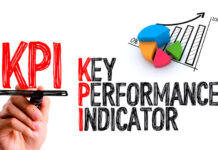Toastmasters offer a wide range of roles within their organization, each with unique benefits. Here are some of the benefits associated with different Toastmaster’s roles:
- Speaker: Toastmasters provides a supportive environment for individuals to practice and improve their public speaking skills. By taking on the role of a speaker, members gain confidence, develop effective communication techniques, and learn to articulate their ideas clearly.
- Evaluator: Evaluators play a crucial role in providing constructive feedback to speakers. By becoming an evaluator, members enhance their listening skills, learn to provide helpful and positive critiques, and develop the ability to identify areas of improvement for others.
- Table Topics Speaker: Table Topics is an impromptu speaking segment where participants are given a random topic and asked to speak on it briefly. By taking on the role of a Table Topics speaker, members improve their ability to think quickly, organize their thoughts on the spot, and deliver coherent speeches without prior preparation.
- Timer: The role of a timer involves keeping track of speech timings and providing accurate time signals to speakers. As a timer, members learn to manage time effectively, understand the importance of adhering to allocated time limits, develop timekeeping skills, and deliver concise messages.
- Grammarian: The grammarian’s role is to note any grammatical errors, language usage, and word choices made during speeches. By becoming a grammarian, members develop a keen eye for language precision, expand their vocabulary, and enhance their language skills while helping others improve theirs.
- Ah-Counter: The ah-counter listens for filler words such as “um,” “ah,” “like,” and notes their frequency during speeches. By taking on this role, members become more aware of their filler word usage, improve their fluency, and learn to speak more confidently and smoothly.
- Toastmaster of the Day: The Toastmaster of the Day acts as the meeting’s host and ensures the smooth running of the session. This role provides an opportunity to develop leadership skills, practice effective meeting management, and enhance organizational abilities.
- General Evaluator: The general evaluator evaluates the overall meeting, including the performance of various roles, and provides constructive feedback. By becoming a general evaluator, members develop observational skills, learn to provide comprehensive evaluations and enhance their ability to offer feedback in a constructive and supportive manner.
Overall, the benefits of Toastmasters roles include the following:
- Improving public speaking skills.
- Gaining confidence.
- Enhancing leadership abilities.
- Developing effective communication techniques.
- Providing and receiving constructive feedback.
- Expanding vocabulary.
- Fostering a supportive learning environment.
These roles offer valuable opportunities for personal and professional growth, which can be applied in various aspects of life.











